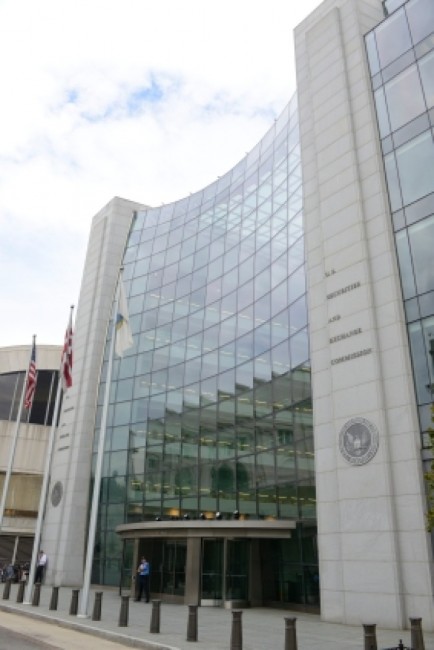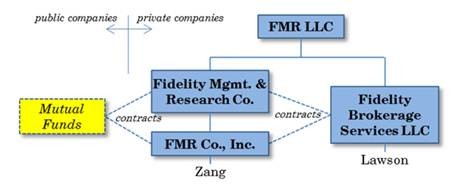Show posts for: Dodd-Frank Act
-
 Read more
Read more
Taiwan and Manhattan’s Foley Square are separated by 7,874 miles, and Taiwanese citizen Meng-Lin Liu couldn’t bridge the distance in federal court. Liu sought to recover in Manhattan under the Dodd-Frank Act’s anti-retaliation provision (15 U.S.C. § 78u‐6(h)(1)). However, on August 14, the Second Circuit, which sits in Foley Square, affirmed the dismissal of his whistleblower retaliation claim. Liu v. Siemens AG, No. 13-4385-cv (2d Cir. Aug. 14, 2014).As we previously described here, Liu’s case was relatively simple. He alleged that he repeatedly told his superiors at Siemens in Asia, and the public, that Siemens was violating the Foreign Corrupt Practices Act (FCPA). As a result, he claimed, Siemens demoted him, stripped him of his responsibilities, and eventually fired him with three months left on his contract.
-
 Read more
Read moreThe Securities & Exchange Commission gained significant new enforcement powers in the Dodd-Frank Act of 2010. Under the Act, the SEC can award bounties to whistleblowers who provide information leading to successful enforcement actions. It has already exercised this power, making eight whistleblower awards since starting its whistleblower program in late 2011. The Dodd-Frank Act also allows the SEC to sue an employer who retaliates against a whistleblower, but the SEC hasn’t previously taken that step.
Ten days ago, that changed. The SEC announced that it had charged Paradigm Capital Management and owner Candace King Weir with engaging in prohibited trades and retaliating against a head trader who reported the trades to the SEC, and that Paradigm and Weir had settled the charges for $2.2 million. Without its new enforcement authority under Dodd-Frank, the SEC wouldn’t have been able to bring the retaliation charge.
According to the SEC’s press release, Paradigm “removed [the whistleblower] from his head trader position, tasked him with investigating the very conduct he reported to the SEC, changed his job function from head trader to a full-time compliance assistant, stripped him of his supervisory responsibilities, and otherwise marginalized him.”
The formal order issued by the SEC further describes what happened to the whistleblower. The day after the trader told Paradigm that he had reported these particular trades to the SEC, Paradigm removed him from his position. The trader and Paradigm tried to negotiate a severance package, but when that fell through, Paradigm brought him back to investigate trades and work on compliance policies – but not to resume his head trading responsibilities.
-
 Read more
Read moreWhile we’re talking about whistleblowers, it’s worth noting that two days ago, the U.S. Court of Appeals for the Second Circuit heard oral argument on appeal from the a federal district court’s opinion in Meng-Lin Liu v. Siemens AG, 978 F.Supp.2d 325 (S.D.N.Y. 2013). This case raises the significant question as to whether the anti-retaliation provisions of the Dodd-Frank Act, 15 U.S.C. § 78u-6(h)(1)(a), apply to an employee who is terminated by a non-U.S. corporation that does business in (and is regulated by) the United States.
-
 Read more
Read moreIn 2010, Congress passed the Dodd-Frank Act, strengthening legal protections for employees who report violations of the securities laws. However, as we’ve covered here, here, and here, the courts have diverged widely as to whether an employee must report directly to the SEC in order to be shielded from retaliation.
In Asadi v. GE Energy (USA), LLC, which we addressed in this post, the Fifth Circuit decided that to meet Dodd-Frank’s definition of a “whistleblower” – and to be protected by its anti-retaliation provision – an employee must in fact provide information to the SEC. However, most of the district courts that have addressed the issue have decided that an employee need not report to the SEC in order to be protected from adverse actions by his or her employer.
-
 Read more
Read moreHere at the Suits by Suits Worldwide Operations Center, weather continues to have us flummoxed, vexed, and annoyed: even though a famous Pennsylvania rodent discerned that we would have six more weeks of our brutal winter, we’ve had a pleasant warm spell that is about to come to a crushing end due to a storm front that goes by the curious name of "Texas Hooker" (we did not make that up). And we’re about to be plunged back into the depths of the polar vortex yet again – although our earlier bouts with the grim chill may have wiped out our area’s growing population of stink bugs.
In any event, we always take shelter from the storms, the cold, and the heat by digging into our Inbox of interesting developments in executive employment disputes and the issues that surround them, including:
- The Securities and Exchange Commission has filed an amicus brief in the Second Circuit, arguing that its interpretation of a “whistleblower” under Dodd-Frank – essentially an employee who reports wrongdoing either internally or to the SEC – should be followed. We’ve covered this case, Liu v. Siemens, before, for an earlier ruling holding that Dodd-Frank’s whistleblower protections don’t apply overseas.
- Staying with the whistleblower theme for a minute: government contractor Kellogg Brown & Root is being attacked by a whistleblower, who has complained to the SEC and the Justice Department that employees are forced to sign confidentiality agreements that prevent them from ever disclosing allegations of wrongdoing. This one could be interesting…
- Auto retailer Carmax is defending the arbitration clause in its employment agreement in a California appellate court, urging it to reject an employee’s argument that the clause is illusory because Carmax reserved the right to amend it at any time.
- The bankruptcy trustee for real estate company Grubb & Ellis is trying to claw back $650,000 from a former executive, alleging the payments in stock and paid time off were fraudulent.
- Finally, while we write a lot about non-compete agreements between executives and employers generally, we rarely see them between divorcing spouses – but a California court of appeal ruled on just such an issue this week. The court held that a judge’s order prohibiting one spouse from working in the same field – the rum importing business – as the other spouse didn’t violate California’s general ban on non-compete agreements because the order was an order, and not an agreement. It remanded the case, however, finding its five-year, worldwide ban on the one spouse getting into the rum importing business was overbroad.
-
Read more
For those of us who follow whistleblower law, Wednesday was a big day – and a good one for employers. In two separate federal appellate decisions, courts affirmed the dismissal of whistleblower actions based on very different issues. For potential whistleblowers and employers alike, the decisions demonstrate yet again the importance of the particular requirements and scope of the law that a whistleblower relies on to support his claim.
The first decision, Villanueva v. Department of Labor, No. 12-60122 (5th Cir. Feb. 12, 2014), comes to us from the Fifth Circuit. It involves William Villanueva, a Colombian national who worked for a Colombian affiliate of Core Labs, a Netherlands company whose stock is publicly traded in the U.S. Villanueva claimed that he blew the whistle on a transfer-pricing scheme by his employer to reduce its Colombian tax burden, and that his employer passed him over for a pay raise and fired him in retaliation for his whistleblowing.
-
 Read more
Read moreThe federal courts are drawing a clear battle line over the disclosures that an employee must make before bringing a whistleblower retaliation claim under the Dodd-Frank Act of 2010. Leading the charge on the one side is the Fifth Circuit, which held in Asadi v. GE Energy (LLC) that a fired employee can’t bring a Dodd-Frank retaliation claim unless he reported corporate misconduct to the SEC prior to his firing. On the other side, the SEC and judges in New York, Connecticut, and Tennessee are massing in support of allowing a plaintiff to bring a retaliation claim even if he only disclosed the misconduct internally prior to firing.
Two months ago, Judge Richard Stearns of the U.S. District Court for the District of Massachusetts joined the SEC’s side of the battle. He ruled that Richard Ellington could pursue a Dodd-Frank retaliation claim against his former employer, New England Investment & Retirement Group, Inc. (NEINV), and his boss, Giacoumakis, even though Ellington only reported concerns about wrongdoing to NEINV’s compliance officer prior to his termination, and did not go to the SEC until after he was fired. Ellington v. Giacoumakis, No. 13-11791-RGS (D. Mass. Oct. 16, 2013).
-
Read more
On December 10, 2013, Suits by Suits contributing editors Ellen D. Marcus and Jason M. Knott will present a live webinar titled “Whistleblower Watch: Big Issues in the Latest Whistleblower Cases Under Dodd-Frank, Sarbanes-Oxley, and the Internal Revenue Code.” During the webinar, Ms. Marcus and Mr. Knott will discuss the whistleblower and anti-retaliation provisions of the Dodd-Frank and Sarbanes-Oxley Acts, the Internal Revenue Code, and other federal statutes. Their presentation will address the types of businesses and conduct that can be targeted by whistleblowers, the procedures that whistleblowers must follow to pursue and preserve a claim, the remedies available to whistleblowers, and more. Ms. Marcus and Mr. Knott will also examine the pressing issues under these laws that are being debated in the courts. This includes contradictory decisions about whether the Sarbanes-Oxley Act’s whistleblower provision covers employees of privately-held companies, such as investment advisers—an issue that is currently before the U.S. Supreme Court in the case of Lawson v. FMR LLC, which we have previously covered in various posts. To register for the webinar, click here.
-
Read more
Twitter’s founders are cashing in on Wall Street, and journalists are piggybacking on the news with articles like this one, which recaps 10 “surprising superstars” of the social network. No, Suits by Suits didn’t make the cut, but you can still follow us at @suitsbysuits, where we’ll bring you 140-word tweets about news related to executive-employer disputes. These are the kinds of stories we track:
- The Texas Supreme Court heard argument this week in Exxon Mobil’s dispute with former executive William Drennen. Jeremy Heallen of Law360 (subscription required), wrote that after Drennen retired from Exxon (@exxonmobil) and went to work for competitor Hess, Exxon claimed that he had forfeited his restricted stock under a “detrimental-activity provision” in his incentive plan. Exxon is seeking reversal of the lower court’s holding that the forfeiture violated Texas law, which disfavors “unreasonable” noncompetition agreements.
- AIG has settled a $274 million dispute with former real estate executive Kevin Fitzpatrick, reported (@nateraymond) Nate Raymond of Reuters. The terms are confidential, but Fitzpatrick’s lawyer says that he is “very happy.” Given the potential dollar amounts between $0 and $274 million, it’s easy to guess why.
- Rachel Louise Ensign of the Wall Street Journal (@RachelEnsignWSJ) (subscription required) covered a developing trend this week: more whistleblowers are coming from corporate compliance departments. As one example, Ensign described Meng-Lin Liu’s case against Siemens AG, which we covered here. The possibility of lucrative awards under the Dodd-Frank Act’s whistleblower program may be sparking the trend, although as Ensign points out, compliance officers are subject to additional restrictions under that program.
- In other whistleblower news, the Senate approved a bill to prohibit companies from retaliating against whistleblowers who report violations of the antitrust laws. Jennifer Koons of Main Justice (@jenkoons) said that the bill passed with bipartisan support. “Bipartisan” – does anyone still remember that concept?
- Newscaster Larry Conners is still trying to get back on television, despite a prior ruling that his noncompete agreement prohibited him from working for other TV stations in the St. Louis market for a year. Conners’s attorney asked the judge to modify that ruling, which restricted Conners to radio work, wrote (@STLSherpa) Joe Holloman of the St. Louis Times-Dispatch. We’ve previously examined Conners’s case here and here.
-
 Read more
Read moreOn Tuesday, November 12, the Supreme Court will hear argument in the most-watched case of this Term (at least for those of us who edit this blog). The case, Lawson v. FMR LLC, presents the question of whether an employee of a privately-held contractor of a public company can bring a whistleblower retaliation claim against his or her employer under the Sarbanes-Oxley Act of 2002. The plaintiffs in the case, and the parties who have appealed to the Supreme Court, are Jackie Lawson and Jonathan Zang.
In their lawsuit, Lawson and Zang claim that their employers – a group of privately-owned Fidelity subsidiaries that serve as “investment advisers” to publicly-held Fidelity mutual funds – retaliated against them for raising concerns about fraud. Here’s a handy chart from Fidelity’s brief that illustrates the relationship between the parties:
The First Circuit dismissed Lawson and Zang's claims, holding that Sarbanes-Oxley’s anti-retaliation provision only protects employees of public companies. Because Lawson and Zang worked on the blue side of the chart, and not the yellow side, they couldn’t bring a claim for retaliation. (The mutual funds on the yellow side have no employees; they do their business through their contractors on the blue side.)
What do Lawson and Zang argue?
The parties spend a lot of time parsing the language of the Sarbanes-Oxley anti-retaliation provision (18 U.S.C. § 1514A). In their opening and reply briefs, Lawson and Zang argue that the plain text of the law shows that Congress intended to shield employees of contractors of public companies from retaliation for reporting corporate misconduct. If Congress didn’t mean to protect those employees, they say, it wouldn’t have prohibited retaliation by “any officer, employee, contractor, subcontractor, or agent” of “such [public] company.” Under Fidelity’s reading of this provision, the language about contractors would only come into play if a contractor retaliated against a public company employee, and because that doesn’t happen in the real world, the use of the term “contractor [or] subcontractor” would be meaningless.
As the regulatory and business environments in which our clients operate grow increasingly complex, we identify and offer perspectives on significant legal developments affecting businesses, organizations, and individuals. Each post aims to address timely issues and trends by evaluating impactful decisions, sharing observations of key enforcement changes, or distilling best practices drawn from experience. InsightZS also features personal interest pieces about the impact of our legal work in our communities and about associate life at Zuckerman Spaeder.
Information provided on InsightZS should not be considered legal advice and expressed views are those of the authors alone. Readers should seek specific legal guidance before acting in any particular circumstance.
Contributing Editors

John J. Connolly
Partner
Email | +1 410.949.1149

Andrew N. Goldfarb
Partner
Email | +1 202.778.1822

Sara Alpert Lawson
Partner
Email | +1 410.949.1181

Nicholas M. DiCarlo
Associate
Email | +1 202.778.1835




